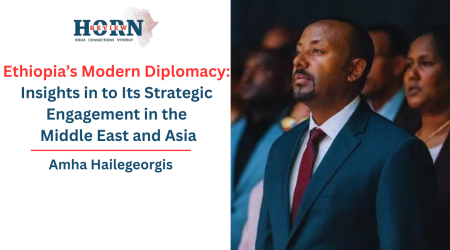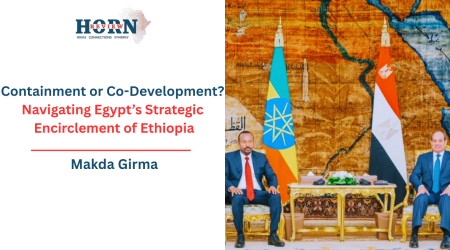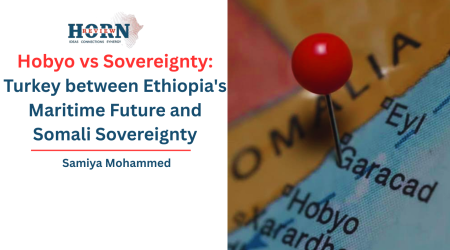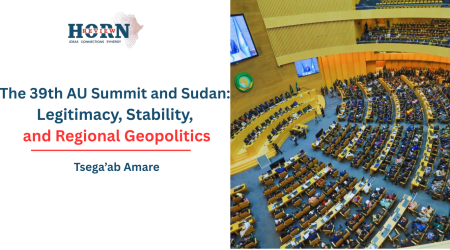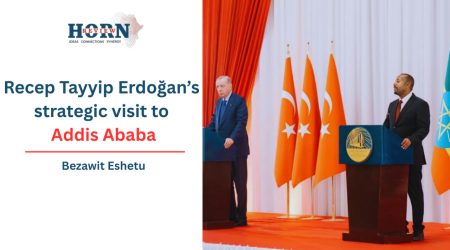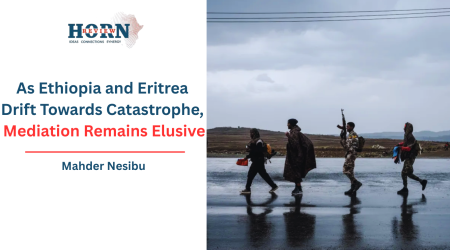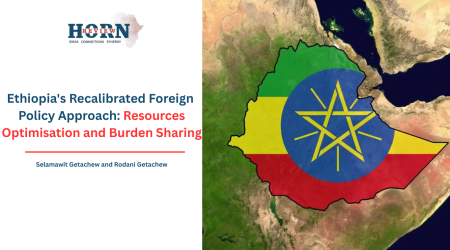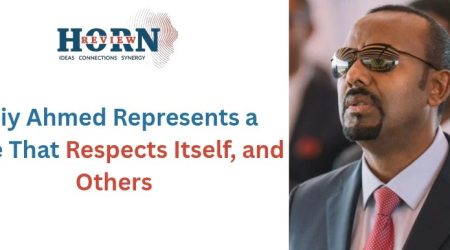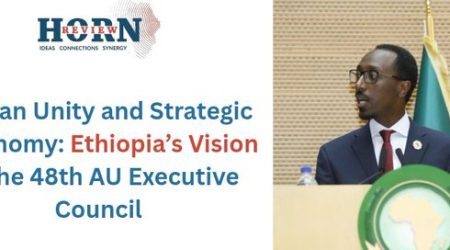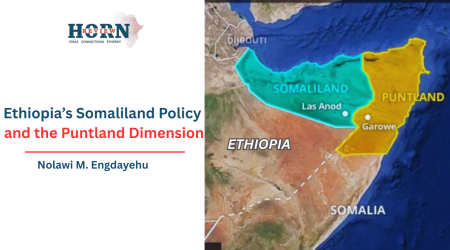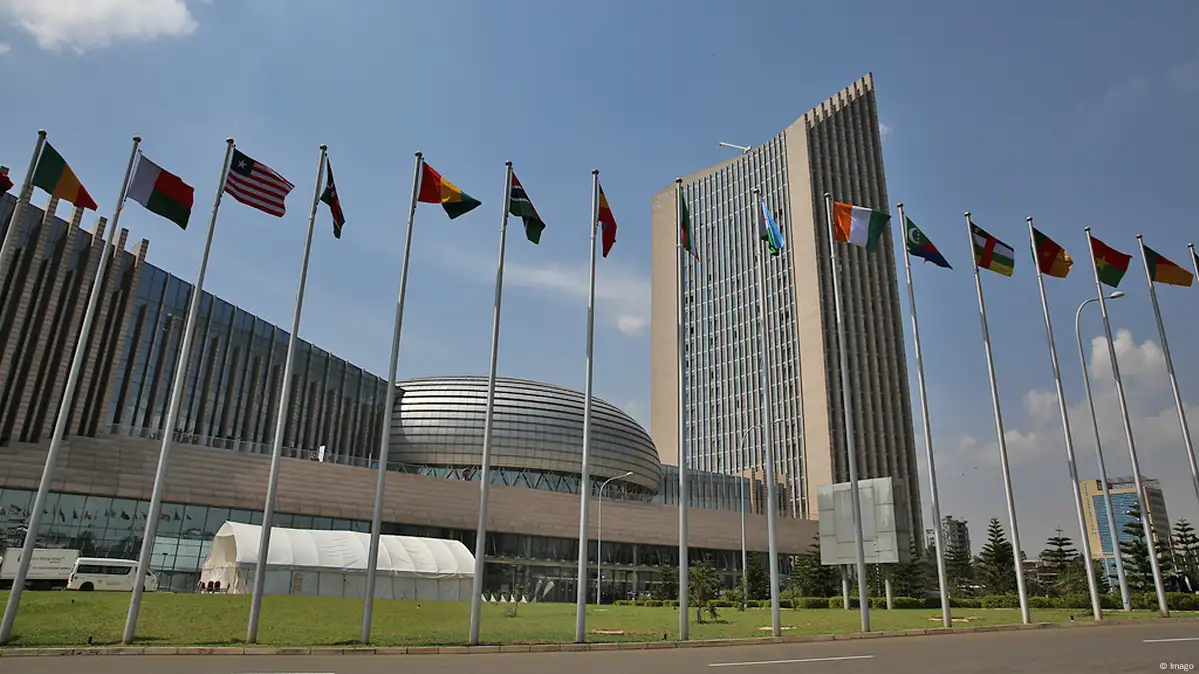
30
Jul
Vetted Access, Trusted Space: Intelligence-Led Protocol Reform for Ethiopia’s Diplomatic Core
The African Union’s headquarters and a seat of several UN bodies make Addis Ababa, which is home to over 134 diplomatic missions, a key hub in the continent’s multilateral framework. It is a crucial site for shaping both regional and continental priorities. Political power and publicity come with status. It takes resilience to manage diplomatic space in the age of hybrid threats, grey-zone conflict, and digital sabotage. This resilience is based on clear legal mandates, technical safeguards, and intelligence-informed protocols. This demands procedural rigor, robust budgetary support and stakeholder engagement.
Ethiopia has employed a protocol volunteer model for over two decades to ensure that high-level diplomatic interactions run smoothly. This program, which is run by the Ministry of Foreign Affairs (MOFA) with the help from the Institute of Foreign Affairs (IFA), relies on recent graduates and college students who are ambitious about diplomacy. They assist with coordination, logistics and translation during official visits and summits. In 2024, The involvement of over 450 volunteers in AU and UNECA events demonstrated its scale and resource capacity.
Despite encouraging youth participation and accessibility, this structure has vulnerabilities that have become increasingly significant. Volunteers often undergo limited screening, chosen primarily for their language proficiency and communication skills rather than their background like beliefs, behavioral history or online persona. Since this strategy is no longer feasible in the current geopolitical environment, it urgently needs a reformation.
Modern diplomacy is contested in casual conversation, translation booths, and waiting rooms, in addition to the negotiation room. Nowadays, behavioral manipulations, image disruption, and information leakage are all considered adversarial tactics. When it was revealed in May 2018 that the AU servers in Addis Ababa had been transmitting internal data to a foreign actor for over five years, concerns regarding both technical and network security and human oversight were raised. (Le Monde Afrique, 2018).
During June 2022, Congolese factions contested leadership claims at the AU summit in front of the International media, and volunteers faced extreme pressure managing. As delegations established parallel communication networks to bypass perceived local surveillance. Likewise, the Rwandan-Ugandan diplomatic dispute from 2018 to 2021 included all allegations of espionage and surveillance within AU premises. These incidents show how minor operational mistakes can become major diplomatic issues, harming Ethiopia’s reputation as the host country.
Ethiopia must address these potential threats by elevating diplomatic protocols from a rule of support to a national security priority. In order for MOFA, IFA, and National Intelligence Security Service (NISS) to accomplish this, they must formally collaborate through parliamentary legislation to share authority, data base and resources. MOFA should maintain its commitment to diplomatic relations and external engagement by integrating modules on behavioral risk management, information ethics, and understanding influence tactics. Meanwhile NISS needs to actively lead the operational aspects pre-deployment candidate screening, digital footprint assessment and clearance.
This interagency approach should not be transient or event-specific. It needs to be a permanent, legally mandated organization with standardized protocols, a shared database, and real-time coordination authority. This structure should be modeled on best practices from Brussels’ diplomatic trainee schemes and the U.S. State Department’s Diplomatic Security Academy, both of which combine rigorous behavioral risk training, technical security modules, and continuous vetting.
In the short run, for the head of the January 2026 AU summit, a dedicated interagency protocol council with a defined budget line and a six-month pilot training phase is needed, and this will provide clear governance and accountability. Implementation must start with early candidate identification by MOFA and IFA, following NISS-led vetting procedures that extends beyond biometric checks and include behavioral interviews, social media scans, and risk flagging based on regional ties and digital connections. Simulation should incorporate real-world crises, such as the attempt to undermine credibility, delegations violating protocol, secret recordings, and unplanned disruptions during discussions.
Controlled activities that teach them how to handle high-stake ambiguity, know when tensions are about to escalate, who to alert, and how to defuse delicate situations without drawing attention to themselves or creating diplomatic problems will be beneficial. The interagency council should also set up a 24/7 rapid incident management team. This team will have the power to act in the event of protocol breach and operate from a secure command room with direct feeds from surveillance sources. Each volunteer team must have a security liaison officer and protocol mentor to ensure ongoing oversight and two-way communication throughout the summit. This temporary but high-quality pilot phase will develop a strategy for long-term institutional reforms.
A reformed structure prioritizes professional involvement over timing participation. The goal is not restricting access, instead it is to ensure that individuals granted access operate within a framework that has been carefully inspected, observed and vetted. Volunteers chosen for high-level roles should be subject to digital media assessment, structured interviews, travel history reviews, and NISS clearance. Access to restricted areas or delegations of head-of -state functions must be administered by a formal, tiered credentialing system.
In this context, Ethiopia must consider specific security risks. Some individuals born and raised on Ethiopian soil, despite sharing physical appearance and cultural or linguistic assimilation, do not hold official citizenship and may have family or ideological ties to hostile neighboring states. Some second-generation refugees may exhibit native-level fluency in Amharic and social familiarity, allowing them to engage with national systems without drawing suspicion. Although many contribute positively, some might intentionally or unintentionally jeopardize access, harm the nation’s reputation, or reveal private information. Their ambiguous citizenship status, which results from incomplete integration and lack of official registration, can cause accountability gaps, especially in politically delicate situations. As a result, intelligence-led screening must consider behavioral indicators, digital activity, legal status and transactional association.
Foreign actors may exploit inadequately screened volunteers for clandestine influence operations disguised as standard diplomatic hospitality. To mitigate this risk, all volunteers should complete the core IFA certification form in consultation with security and protocol experts. This transition elevates volunteers from mere logistical assistants to informed and disciplined participants in Ethiopia’s diplomatic endeavors.
In order to manage the complex security and symbolic requirements of hosting continental events, Ethiopia should concurrently adopt a summit zone doctrine. Top tier Diplomatic zones should be established for certain geographic areas, such as the AU headquarter, the Sheraton Addis and Skylight hotels and important transit routes. This temporary legal and operational classification would allow for enhanced surveillance, countersurveillance, and behavioral monitoring. There should be pre-established coordination between federal police, city administration, and NISS governed by quick response capabilities. The goal is not to militarize diplomatic spaces but institutionalizing information fusion and cross agency readiness.
Ethiopia’s leadership position would be further solidified with the founding of a Diplomatic Security Academy. Co-managed by MOFA and NISS, this academy should serve as a permanent training facility for government-associated volunteers, protocol officers, and diplomatic security staff. The curriculum should cover behavioral intelligence, hybrid threat environments, psychological manipulation detection, and high-pressure decision-making. By building a professional corps that can work at the crossroads of security and diplomacy, Ethiopia can create a reserve of deployable personnel for AU events and bilateral and trilateral engagements in Addis Ababa.
These proposals are merely theoretical. The reputational cost of operational failure is significant. Repeated leaks, poor conflict resolution, or indications of lax procedures will gradually weaken trust among the AU members and external partners. While it is unlikely the AU will move its headquarters anytime soon, Ethiopia’s hosting role may be informally downgraded due to the ongoing perception of institutional unreliability. In order to avoid local facilitation, delegations may take precautionary steps and establish parallel communication networks that go around local facilitation. Such outcomes would weaken Ethiopia’s strategic position, lowering its negotiating power in trade, security agreements, and regional integration.
Diplomatic capital builds over decades but can also fade swiftly. It rests on dependability, consistency, and discretion qualities rooted in institutional design rather than rhetoric. Ethiopia’s asymmetrical advantage derives from hosting the AU and multiple UN agencies in Addis Ababa. To preserve and amplify this leverage, Ethiopia must institutionalize a proactive, intelligence-led protocol architecture that balances access with security. In the modern era, influence often arrives in suits, casual chats, or unscreened access uniforms alone no longer signal authority. Ethiopia’s strategic response must be professional, permanent, and legally grounded. The credibility of its capital depends on it.
It is not a cosmetic improvement to reform the protocol architecture. It is a vital national necessity. Intelligence and diplomacy are not mutually exclusive fields in the modern world; they are interdependent. Instead of uniforms, influence operations now arrive in suits. Disruption does not look like open aggression; it frequently manifests as casual interaction, unscreened access, or regular hospitality. Ethiopia’s strategic response must be appropriate, proactive, and grounded in policy. The credibility of its capital relies on it.
By Surafel Tesfaye & Bezawit Eshetu, Researchers, Horn Review
Reference
- Addis Standard. (2025). From Anchor to Adrift: Ethiopia’s foreign policy loses influence amid internal turmoil, regional tensions.
- Le Monde Afrique. (2018). Le siège de l’Union africaine espionné par Pékin.
- Oren, I. (2020). Between Intelligence and Diplomacy: The Information Revolution as a platform to upgrade diplomacy

